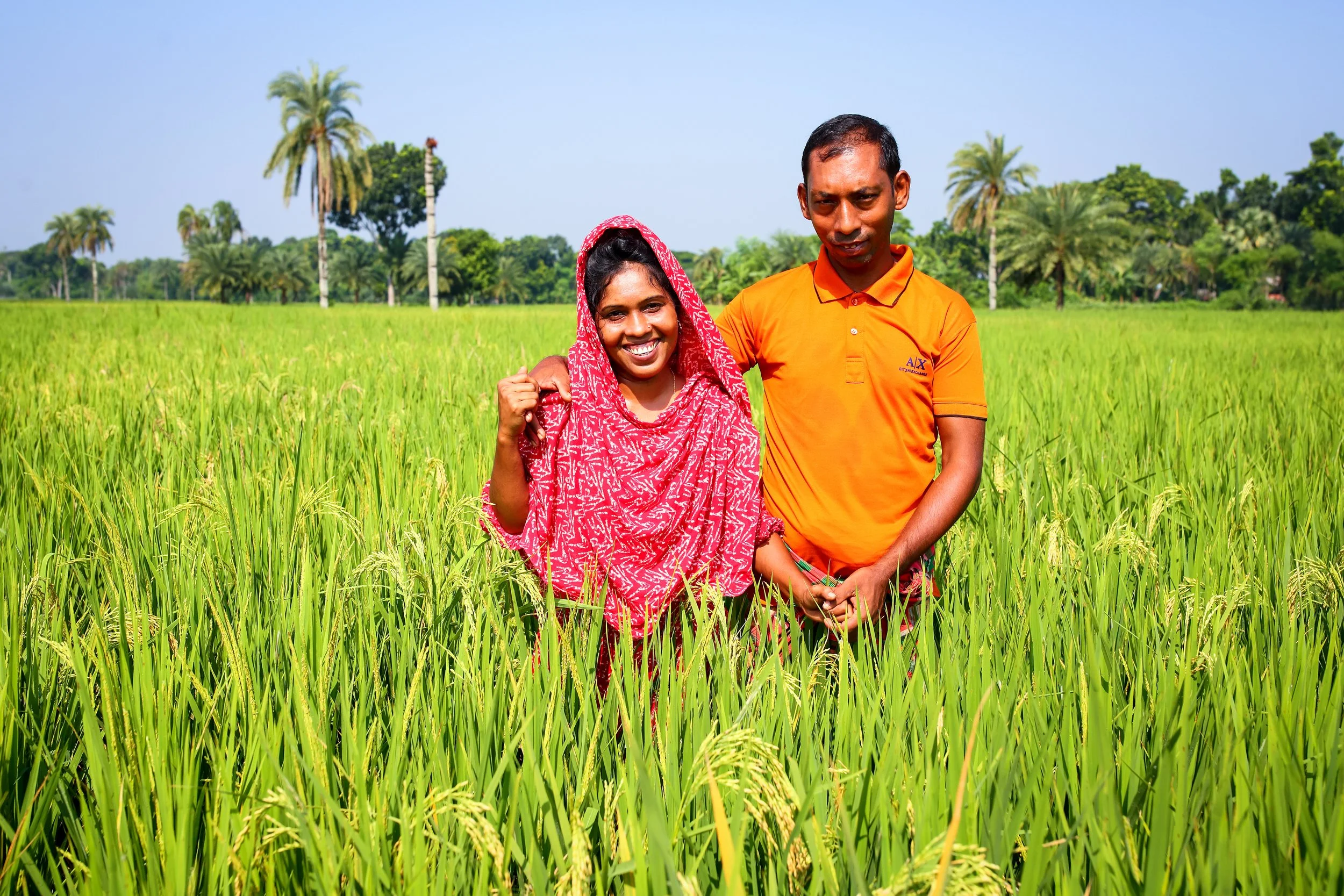Women’s Economic Empowerment Project - changing lives in rural Bangladesh
49% of the rural population in Bangladesh live in poverty with women disproportionately affected, many working in precarious informal employment - their incomes being less than half that of men. (OPHI 2019).
In rural Bangladesh, women’s livelihoods are volatile because of the heavy reliance on agriculture and the increased susceptibility to climate shocks. They’re discriminated against and don’t enjoy equal rights in marriage, divorce, inheritance, and custody of children.
Deep-rooted beliefs that give more power to men than women, discriminatory laws, wage discrimination and malnutrition among women perpetuate the problems, with few women in parliament or local politics to challenge these injustices.
In this project, funded by the EU, we’ve worked across nine districts with 15,000 rural women and their 61,650 family members since February 2021:
Strengthening women’s community organisations.
Integrating women’s organisations into key decision-making processes in local government.
Supporting families and communities to challenge gender norms.
Setting up 100 Women’s Community Stores, owned and run by women, to create new opportunities to earn a living and take a place in the public sphere.
Supporting 500 women-led businesses to strengthen and grow environmentally sustainable enterprises.
““Earlier I used to feel like a burden on my husband’s shoulder. I was an unemployed housewife and my husband used to be a day labourer and only with his earnings this family was running with many difficulties.
Now we both do vegetable farming in our own field. No woman in our area used to farm or raise animals, there was not a woman in the area who was a shopkeeper before. Now I can earn myself and support my family. That is success for me.” ”



